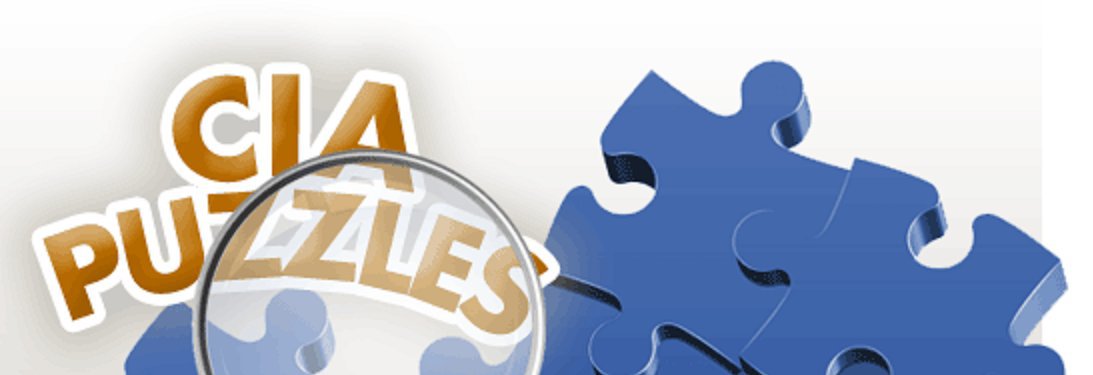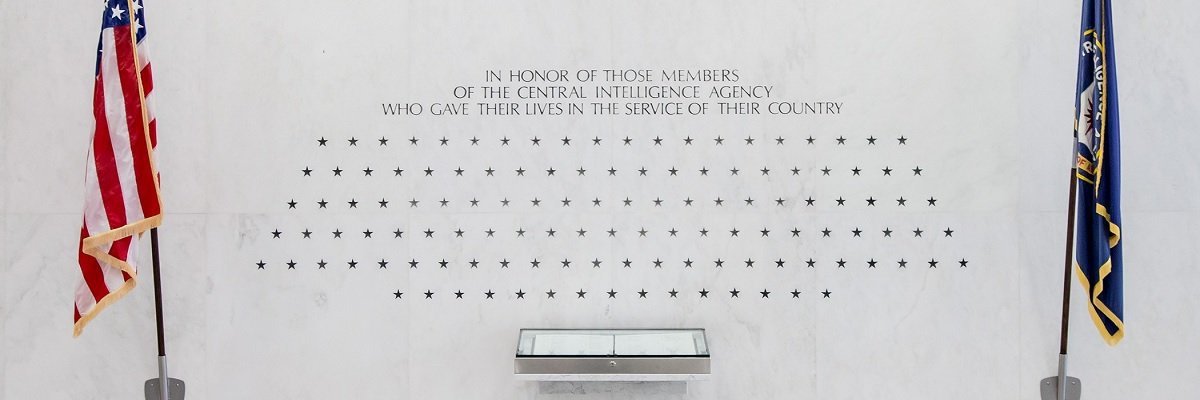If you’re already beaten the CIA’s photo analysis challenge and are bored with its online coloring book “Ava’s Adventures,” don’t despair - in April, the CIA released an internal quiz in response to an ACLU lawsuit for the agency’s documents on domestic surveillance.
The quiz covers the CIA’s authority to conduct intelligence operations, with a particular focus on domestic surveillance authorization. Most of the 31 questions on the quiz are redacted. But a quick spin through the released portions reminds us that learning about our intelligence agencies and their lawful powers can be whimsical fun.
The ACLU filed its Freedom of Information Act request to the CIA in May 2013. The request, which the ACLU concurrently submitted to a number of other intelligence agencies, seeks records pertaining to the interpretation of intelligence authorities granted by executive order and requirements for “minimizing” intelligence collected on US citizens and residents.
Signed by President Reagan in 1981 and revised a number of times since (see question 20, and no Wikipedia peeking), Executive Order 12333 broadly divvies up responsibilities for intelligence work among various federal agencies and establishes oversight procedures for the intelligence community.
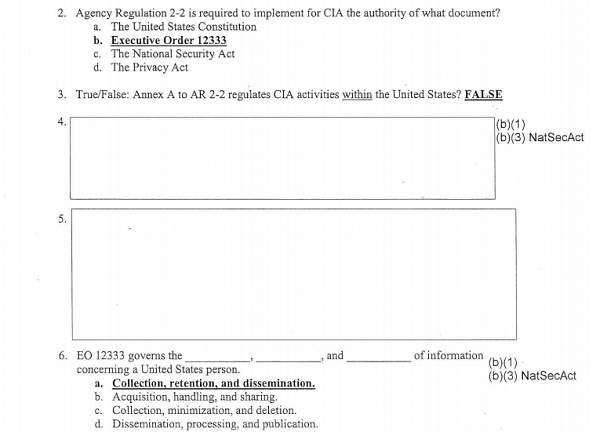
The first few questions on the quiz are softballs. Any agent or CIA lawyer who turned to the first page of Agency Regulation 2-2, also released for the first time in response to the ACLU’s lawsuit, would see that the regulation implements E.O. 12333 in greater detail.
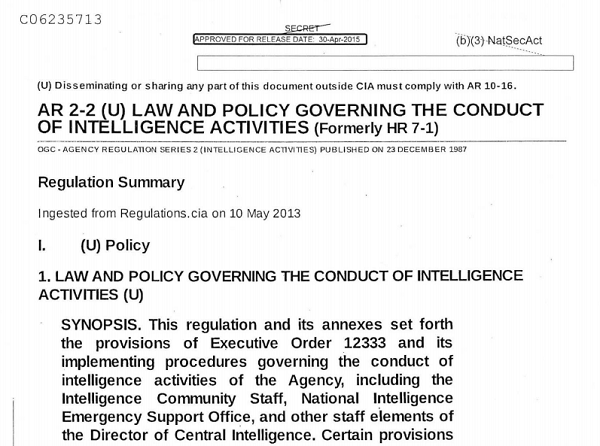
The first question on this quiz may be a redacted mystery for the ages. But the literate among us — presumably you, dear reader — have conquered Question 2.
For those stumped by Question 3, consult the title of Annex A.
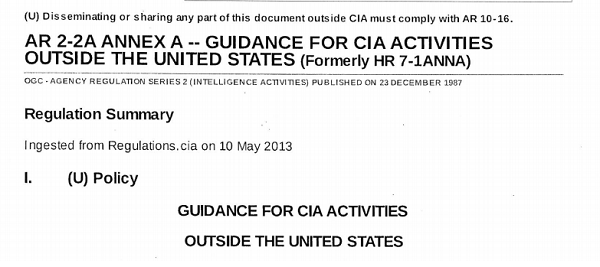
Close call. Those curious about CIA activities within the United States will need to turn to Annex B.
Things get trickier around Question 7. Stricter rules apply to collection of intelligence regarding U.S. persons (USPs), which can include companies incorporated inside the United States. So it’s important for CIA agents to be able to spot who qualifies.

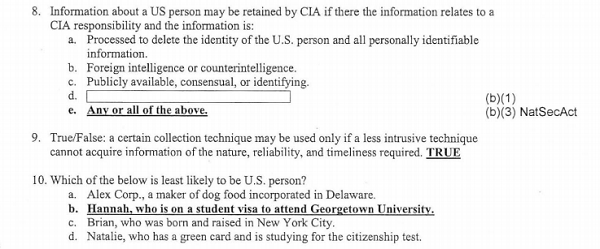
The remaining unredacted questions cover the gamut, from the definition of “foreign intelligence” to a brief survey of Congressional oversight territory.
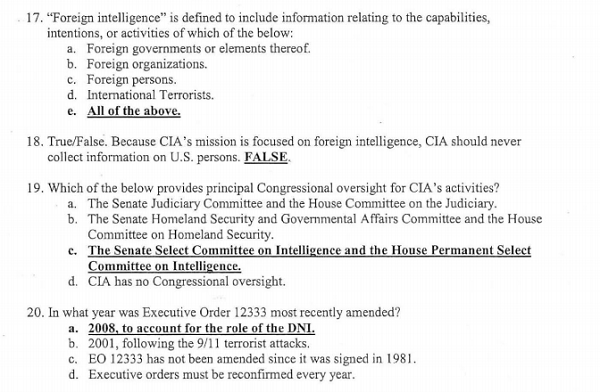
The quiz ends, as all great exams do, with a stumper.

Paging Jacques D. Frenchman.
